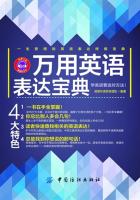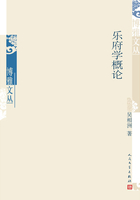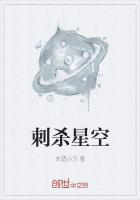And what a noble medium the English language is. It is not possible to write a page without experiencing positive pleasure at the richness and variety, the flexibility and the profoundness of our mother-togue. If an English writer cannot say what he has to say in English, and in simple English, depend upon it—it is probably not worth saying. What a pity it is that English is not more generally studied. I am not going to attack classical education. No one who has the slightest pretension to literary tastes can be insensible to the attraction of Greece and Rome. But I confess our present educational system excites in my mind grave misgivings. I cannot believe that a system is good, or even reasonable, which thrusts upon reluctant and uncomprehending multitudes of treasures which can only be appreciated by the privileged and gifted few. To the vast majority of boys who attend our public schools a classical education is from beginning to end one long useless, meaningless rigmarole. If I am told that classes are the best preparation for the study of English, I reply that by far the greater number of students finish their education while this preparatory stage is still incomplete and without deriving any of the benefits which are promised as its result.
And even of those who, without being great scholars, attain a certain general acquaintance with the ancient writers, can it really be said that they have also obtained the mastery of English? How many young gentlemen there are from the universities and public schools who can turn a Latin verse with a facility which would make the old Romans squirm in their tombs. How few there are who can construct a few good sentences, or still less a few good paragraphs of plain, correct, and straightforward English. Now, I am a great admirer of the Greeks, although, of course, I have to depend upon what others tell me about them,—and I would like to see our educationists imitate in one respect, at least, the Greek example. How is it that the Greeks made their language the most graceful and compendious mode of expression ever known among men? Did they spend all their time studying the languages which had preceded theirs? Did they explore with tireless persistency the ancient root dialects of the vanished world? Not at all. They studied Greek. They studied their own language. They loved it, they cherished it, they adorned it, they expanded it, and that is why it survives a model and delight to all posterity. Surely we, whose mother-tongue has already won for itself such an unequalled empire over the modern world, can learn this lesson at least from the ancient Greeks and bestow a little care and some proportion of the years of education to the study of a language which is perhaps to play a predominant part in the future progress of mankind.
Let us remember the author can always do his best. There is no excuse for him. The great cricketer may be out of form. The general may on the day of decisive battle have a bad toothache or a bad army. The admiral may be seasick—as a sufferer I reflect with satisfaction upon that contingency. Caruso may be afflicted with catarrh, or Hackenschmidt with influenza. As for an orator, it is not enough for him to be able to think well and truly. He must think quickly. Speed is vital to him. Spontaneity is more than ever the hallmark of good speaking. All these varied forces of activity require from the performer the command of the best that is in him at a particular moment which may be fixed by circumstances utterly beyond his control. It is not so with the author. He need never appear in public until he is ready. He can always realize the best that is in him. He is not dependent upon his best moment in any one day. He may group together the best moments of twenty days. There is no excuse for him if he does not do his best. Great is his opportunity; great also is his responsibility. Someone—I forget who—has said: Words are the only things last for ever. That is, to my mind, always a wonderful thought. The most durable structures raised in stone by the strength of man, the mightiest monuments of his power, crumble into dust, while the words spoken with fleeting breath, the passing expression of the unstable fancies of his mind, endure not as echoes of the past, not as mere archaeological curiosities or venerable relics, but with a force and life as new and strong, and sometimes far stronger than when they were first spoken, and leaping across the gulf of three thousand years, they light the world for us today.
在我看来,世上幸运的人——唯一真正幸运的人是那些以工作为乐的人。这类人并不多,起码不如人们常说的那么多,并且,作家也许是其中最重要的组成部分之一。从幸运这个角度来说,他们至少享受着生活中真正的和谐之乐。我觉得以工作为乐,是人们值得为之奋斗的一种崇高荣誉。别人会羡慕这些幸福的人,这也不足为奇,因为他们在快乐的激情里找到了生活的方式,对他们而言,工作一小时,也就是享受一小时,休息——甭管多么有必要——都是让人厌烦的插曲,甚至连休假也差不多是一种损失。无论一个人写得好坏与否,写得或多或少,如果他喜爱写作的话,就会享受其中谋篇布局的乐趣。在一个阳光明媚的清晨,伏案写作,不受任何人打扰地坐上四个时辰,加上有足够的上好白纸,还有一支“挤压式”妙笔——这才是真正的幸福。能有一份愉快的职业让人全身心地投入——此愿足矣!管它外面发生什么事!下议院尽管做想做的一切,上议院也可随便;异教徒或许在世界各个角落?火汹汹;美国市场大可一泻千里,证券下跌;女权运动兴起——所有这些都别管,无论怎样,我们有四个小时可以逃脱这无趣、病态、专制、混乱的尘世,用想象的钥匙开启藏有大千世界所有宝物的橱柜。















